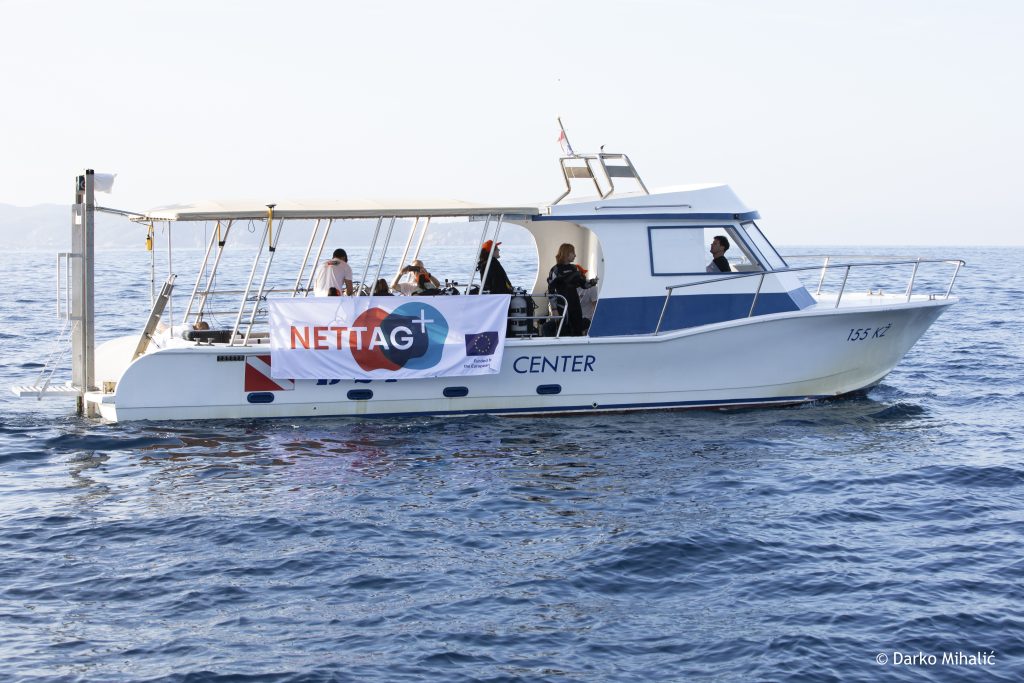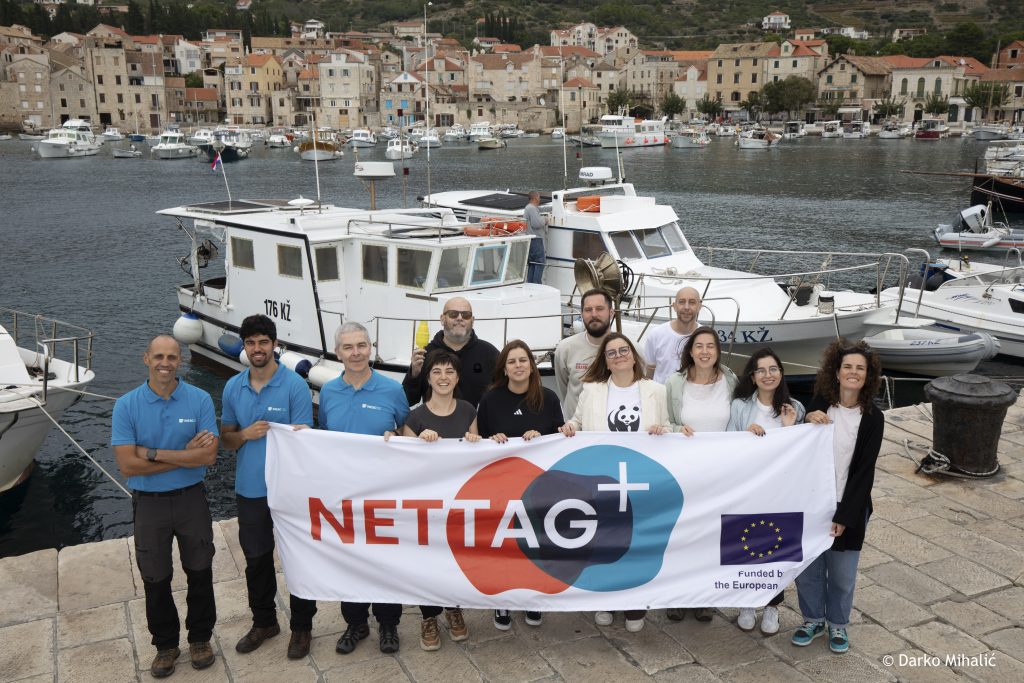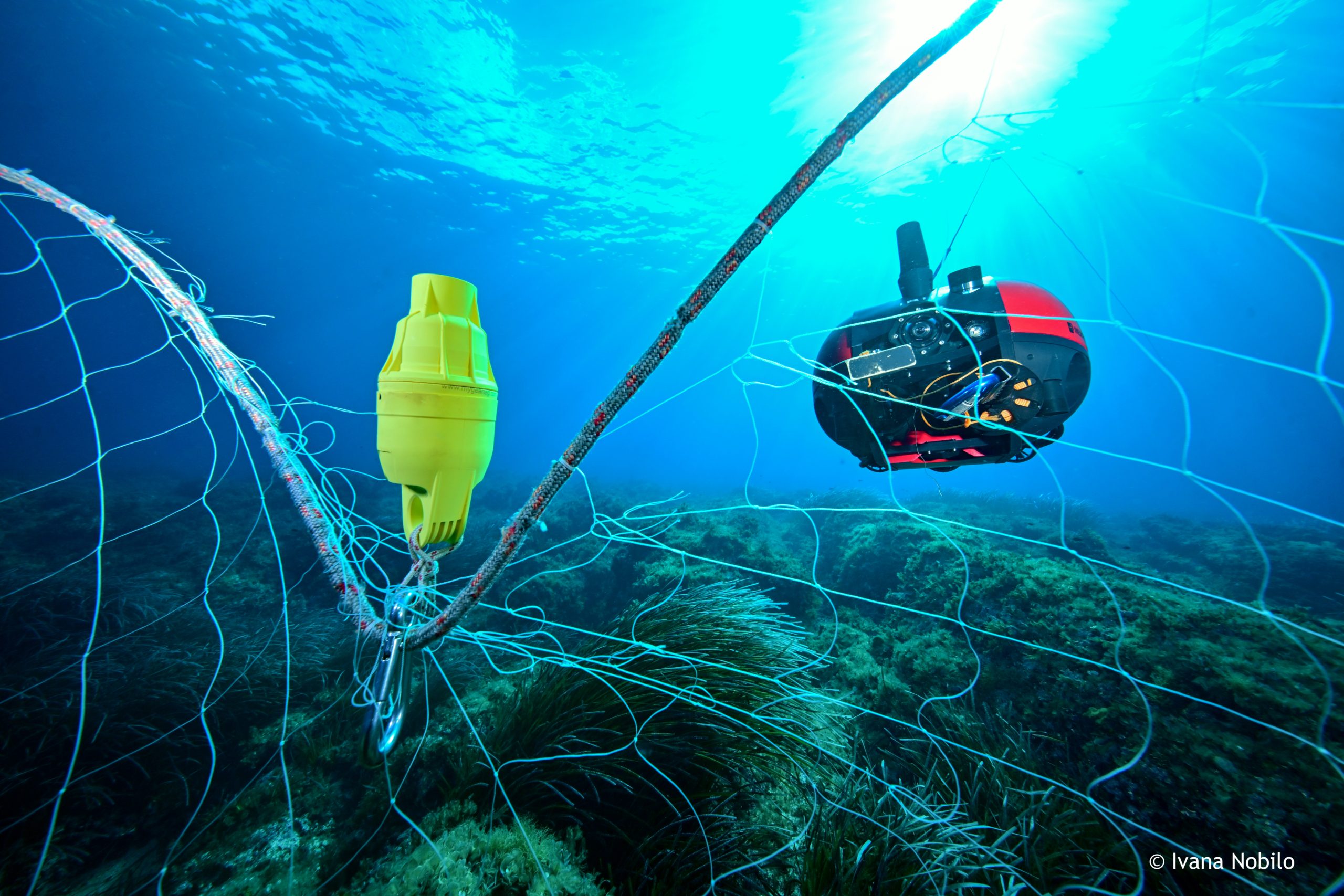The NETTAG+ project continues advancing its mission to avoid the loss of fishing gear with the latest round of field trials, this time on the Croatian island of Vis, in the Adriatic Sea. Organised by WWF-Adria, with the valuable collaboration of Komiža fishers and the B-24 Diving Centre, the trials focused on testing the innovative solutions designed to locate and recover fishing gear in case of loss.
When lost at sea, fishing gear becomes a dangerous form of marine pollution, often referred to as ‘ghost gear’. Made mostly of plastic, this equipment can take decades to degrade, continuing to harm marine life for years. Over the past two years alone, more than five tonnes of discarded and lost fishing gear have been removed from the Adriatic Sea. However, this represents only a small fraction of what remains on the seafloor.
Following the successful trial held in Sicily, the Croatian trials marked another important step in validating the project’s technologies in a different marine environment and with different types of gear. The field activities tested two core NETTAG+ solutions:
- MyGearTag – an acoustic gear location system developed by Newcastle University and Succorfish Ltd., which helps fishers detect and locate their gear in case of accidental loss; and
- IRIS – a robotic subsea system developed by INESC TEC to detect and assist in recovering gear marked with the acoustic tags.
Both technologies were deployed and tested in real conditions by the technical teams from Newcastle University, Succorfish and INESC TEC with the active participation of fishers. Fishers scanned the acoustic tags to register their unique ID, attached them to their fishing gear and used the MyGearTag app to successfully locate the equipment. In parallel, CIIMAR collected water samples and acoustic and environmental data to ensure that NETTAG+ technologies operate safely and have no adverse environmental impact.
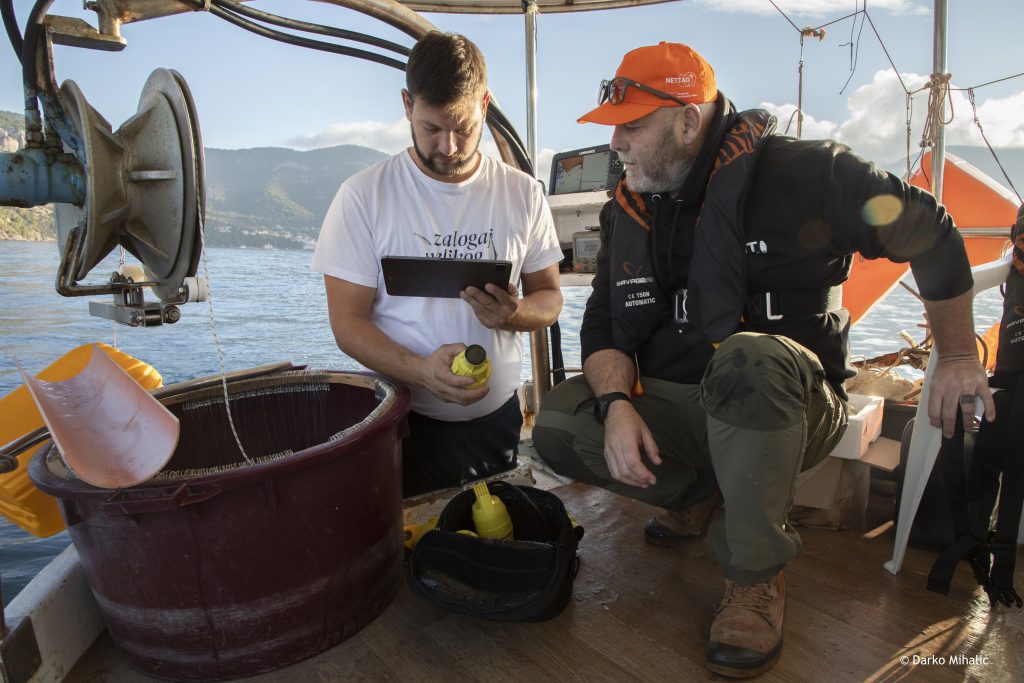
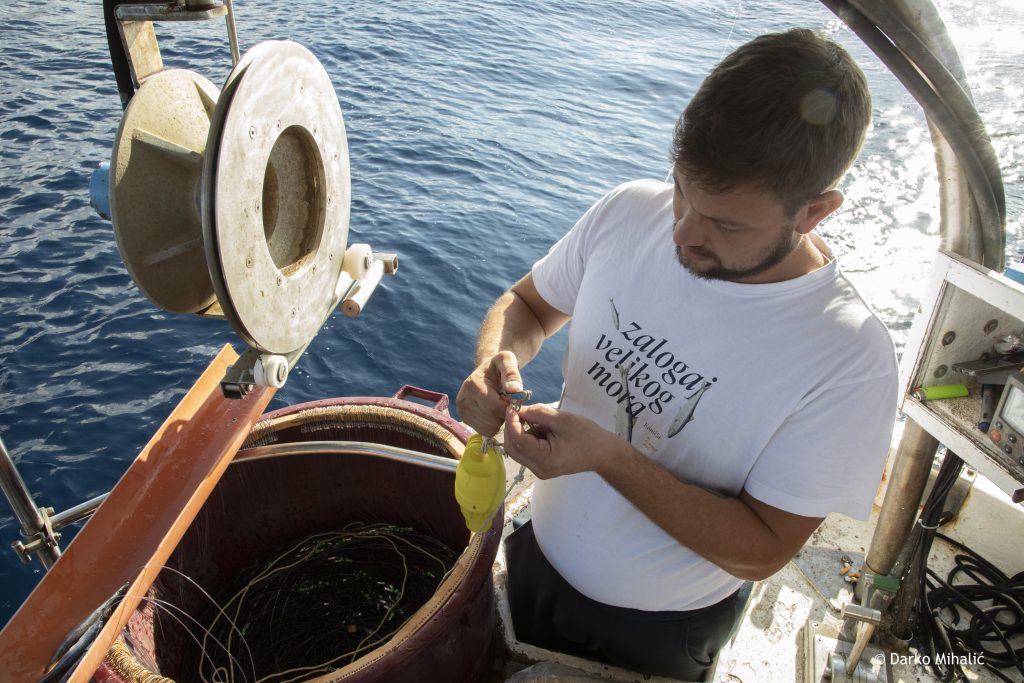
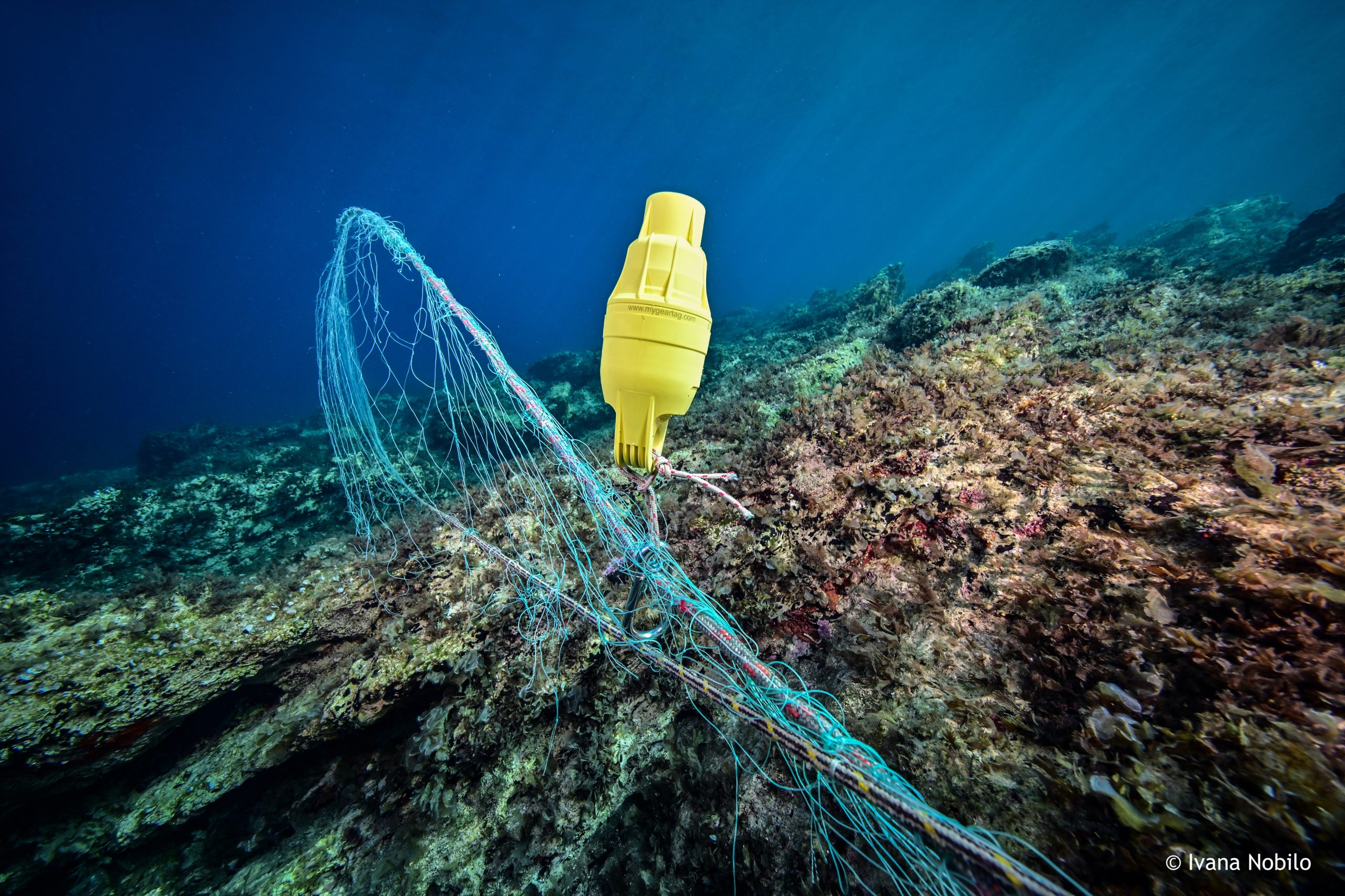
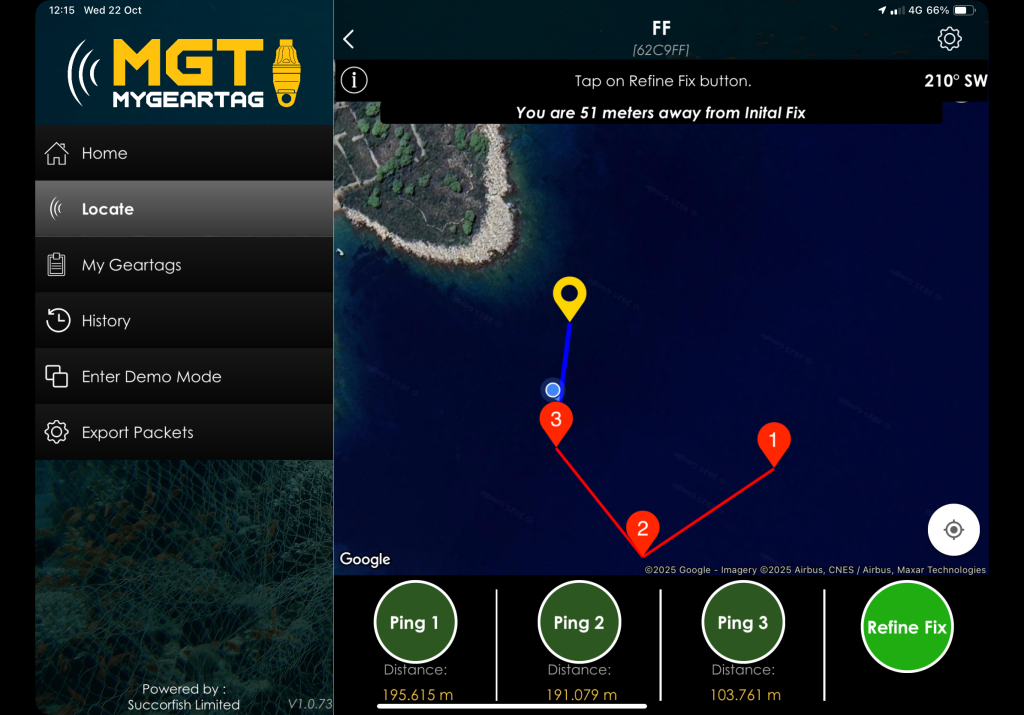
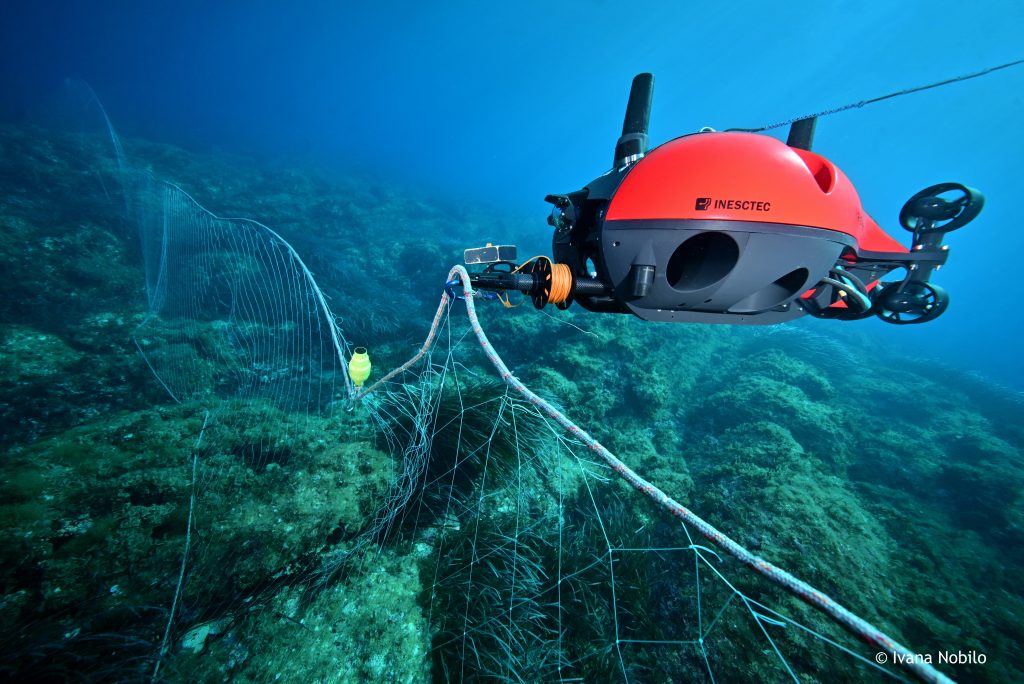
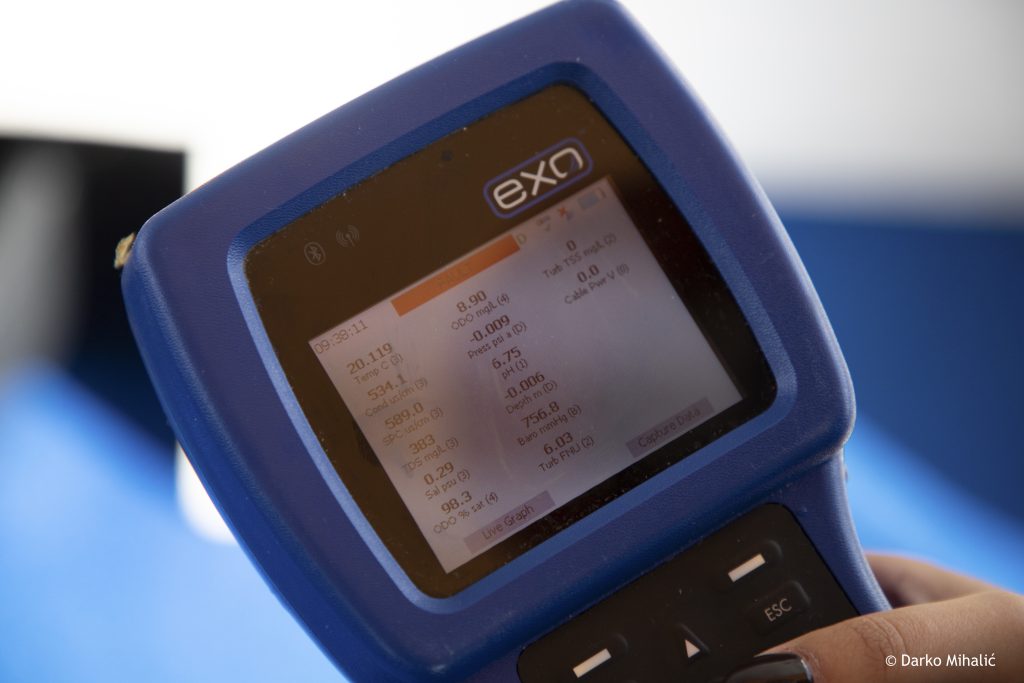
“Cooperation with fishers is crucial in finding effective and sustainable solutions. Thanks to their experience and knowledge of the sea, we can test technologies that make a real difference in practice. Test results on Vis showed that innovation, when applied along with field knowledge, can significantly reduce the risk of equipment loss and harm to marine life”, emphasised Andrea Ivanković, from WWF-Adria.
The Vis trials reaffirmed the value of close collaboration with professional fishers – a fundamental aspect of the NETTAG+ approach to developing innovative, practical and environmentally responsible solutions for tackling marine litter derived from fisheries.
